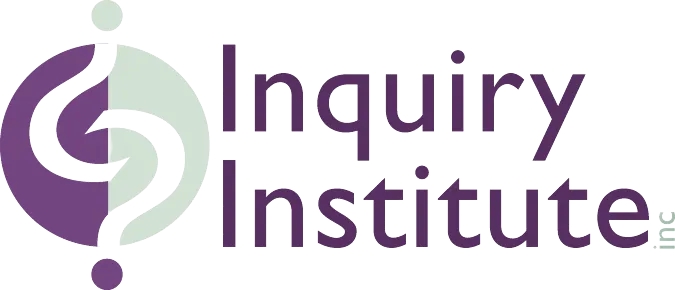Blog

The 8 Costs of Being Self-Critical
I came up with the distinctions of Learner/Judger mindsets and Learner/Judger questions over 25 years ago and first wrote extensively about them in The Art of the Question, which was published in 1998. Over the years I’ve discovered how deep these distinctions go, how transformative and healing they can be, and how much of a difference they make in people’s lives—both personally and professionally.
Even though both mindsets are completely normal—we all have both and always will—I’m continually discovering how ubiquitous and painful “going Judger” can be and how high the costs. Later I’ll write another blog on the high cost of Judger in relationships. After that, I’ll delve into the multiple costs of Judger in organizations. At some point, I’ll also explore the costs of Judger in learning and teaching.
You might wonder why I’m so fascinated with Judger. It began because for a long time I was a champion at self-criticism and self-doubt and it made me miserable. My determination to discover the mechanism of this suffering and turn it around eventually led to distinguishing the Learner and Judger mindsets. Along the way I recognized some important aspects of Judger. First, we’re hardwired for Judger mindset—it’s actually there for our survival and protection—even though it usually shows up as harsh and critical. Just as important, I realized that understanding and accepting my own Judger, rather than rejecting, denying, or being mad at myself for having it, is essential for healing and wholeness. This is why I emphasize the importance of “making friends with Judger.”
These days I “do” Judger to myself so much less frequently that occasionally I fall into complacency and harbor a silly arrogance about having mastered the “art of mindset management.” But just recently, I was sharing some painful challenges based on self-doubt with a friend, Bill and he said, “You’re being awfully hard on yourself.” I was stunned; it hadn’t even occurred to me that my upset had Judger fingerprints all over it. I’m grateful for his comment; we all need friends who’ll help us stay awake. It’s a forever challenge.
I’ve discovered that the first step to freedom from the suffering caused by being self-critical is developing the capacity to simply observe Judger non-judgmentally as it arises. This may sound simple, but anyone who’s tried knows it’s not easy to develop and sustain this practice. Motivating ourselves to engage in this discipline gets easier when we remember the costs of letting Judger rule our experiences and our lives.
Here are brief descriptions of eight costs of self-Judger. I provide this list with the hope that understanding the costs of Judger may fortify your resolve to cultivate your Learner mindset and your success in leading a Learner-centric life.
Judger focuses attention in an unproductive direction. Imagine that we each have a total of 100 attention units to spend at any moment. If you’re giving 90% of your precious units to Judger, there aren’t many left over for Learner. In fact, if you listen to yourself carefully, you’ll discover that most of the static and noise in your head is just Judger doing its thing. I can safely assert that the less Judger noise we experience, the more peacefulness we’ll have in our lives!
The habit of Judger thinking affects our brains. We now know about neuroplasticity, that the brain changes throughout our lives and that we actually have an impact on how it changes and develops. Negative, limiting thinking affects us at the neurochemical level. (See Coaching with the Brain in Mind by David Rock and Dr. Linda Page, anything by Dr. Daniel Siegel or just google neuroplasticity.)
Judger diminishes energy, enthusiasm, and hopefulness. It often creates a self-fulfilling prophecy and an energetic downward spiral, eventually delivering us to the “Judger Pit.” What’s worse, the longer we stay in Judger, the harder it is to get out—though remember, it’s always possible! To see the Choice Map, which illustrates our Learner and Judger mindsets and the Judger Pit, click here:_https://inquiryinstitute.com/resources/choice-map/.
Judger thinking impedes self-confidence, self-compassion and self-appreciation. We end up with a lot of internal conflict and that takes a negative toll on our relationship with ourselves.
Judger thinking actually interferes with our growth and development. Think in terms of emotional intelligence. There are four pillars to emotional intelligence. The foundational one is self-awareness followed by self-regulation, awareness of others, and social skills. I believe that the ability to observe Judger non-judgmentally in oneself, moment by moment, is a highly-evolved form of self-awareness. Lack of awareness of our own Judger actually interferes with our ability to self-correct, learn, and grow. (See Emotional Intelligence by Daniel Goleman).
We’ll have difficulty receiving any acknowledgment, caring, or positivity that comes our way if we listen to others with “Judger ears” and entertain self-questions like, “What’s wrong with what they’re saying?” Even when we’re actually yearning for love and connection, we may not notice when they’re genuinely offered. Naturally, this hurts our current relationships and also interferes with the possibility of fulfilling ones in the future.
Self-Judger impedes professional and business success. How could we “lean into” our careers in proactive, productive and positive ways when Judger thinking is in the way?
Judger thinking inhibits seeing new possibilities and solutions; it blocks our freedom and creativity. Very fine research on the impact of emotions in our lives (See Positivity by Barbara Frederickson) shows that negative emotions (like those associated with Judger) literally narrow our thinking, give us “tunnel vision,” and limit our ability to see options and possibilities. By contrast, positive emotions (like those associated with Learner) open our thinking and peripheral vision, thus allowing us to envision new possibilities and create new futures for ourselves.I believe the golden key—the master switch that makes transformation possible— lies in deeply distinguishing, understanding, and reclaiming the energy of Judger. I am not talking about “positive thinking” or avoiding or denying Judger—in the end that just makes Judger stronger. Rather, it requires getting real about the personal experiences and costs of Judger mindset. Contrary to the fear that doing this makes Judger stronger, learning to observe non-judgmentally brings the freedom that makes transformation possible.
If you want to learn more about cultivating your own Learner mindset, check out our one or two day workshops coming up in October.

Learn More
